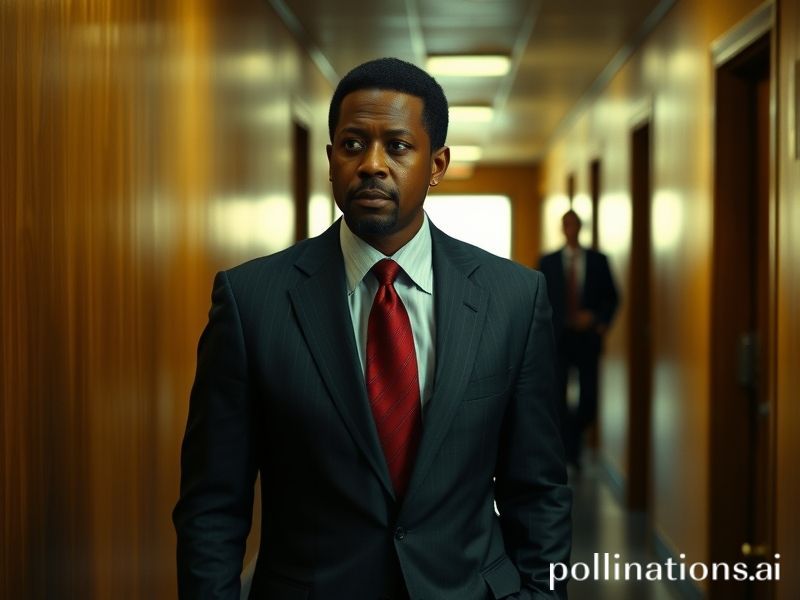From Kang to Canceled: How Jonathan Majors’ Downfall Echoes Across a Fractured Planet
In the grand, looping telenovela that is global pop culture, Jonathan Majors has managed the rare trick of becoming both protagonist and cliff-hanger. One minute the 34-year-old Texan is the Marvel Cinematic Universe’s designated multiversal tyrant, grinning from Lagos billboards and Seoul subway ads; the next he’s a cautionary tale retweeted by law-school seminar groups in Buenos Aires and dissected on Tokyo talk shows that specialize in celebrity schadenfreude. The whiplash is so violent it could power a small Danish wind farm—fitting, since Copenhagen’s film critics are already penning think-pieces asking whether Hollywood can ethically monetize a man who, as of last December, is a convicted domestic-violence offender.
The verdict landed like a drone strike on the Walt Disney Company’s quarterly earnings call. Majors, once slated to anchor the next phase of the most lucrative narrative franchise in human history, instantly became the MCU’s equivalent of enriched uranium: valuable in theory, but nobody wants to store it in their backyard. Shares dipped, memes soared, and somewhere in Burbank a brand-manager Googled “how to digitally replace an entire human.” Meanwhile, in Lagos—where Marvel’s African fanbase has turned opening weekends into street festivals—local commentators noted the irony that the same corporation preaching “representation matters” now has to erase its first Black central super-villain. Progress is a fickle deity.
International implications? Start with soft power. The U.S. exports two things exceptionally well: weapons and stories. When one of its marquee storytellers implodes, allies and adversaries alike savor the narrative. Russian state television gleefully ran segments comparing Majors to American “moral decay,” conveniently ignoring Moscow’s own domestic-violence decriminalization. Chinese censors, ever allergic to scandal, simply vaporized all references to Kang the Conqueror from streaming platforms, proving that authoritarian regimes can perform snap vanishings Mickey Mouse can only dream of.
Europe, ever the moral auditor, reacted with performative horror. The Berlin Film Festival hastily canceled a planned tribute to Majors’ indie work, replacing it with a panel titled “Toxic Masculinity in Global Cinema,” moderated by a director whose last film romanticized a 19th-century poet who beat his wife. Hypocrisy, like CO₂, knows no borders.
What makes the Majors saga globally resonant is its universality: the ancient story of hubris, wrapped in 21st-century branding. Swap the red-carpet photos for ancient Greek amphorae and you’ve got Icarus with a personal publicist. From Seoul to São Paulo, audiences recognize the arc: meteoric rise, private demons, public fall, followed by the inevitable redemption tour—now being test-marketed via teary podcasts and carefully leaked “self-reflection” journals. Odds are good that within eighteen months Majors will appear at a refugee camp in Jordan, camera crew in tow, reminding us all that suffering is the most renewable resource in show business.
The broader significance? In a world where attention is currency, scandal is inflationary. Every lurid headline devalues yesterday’s outrage, forcing celebrities—and the corporations that monetize them—to escalate. Today it’s assault; tomorrow, who knows, perhaps cannibalism with a side of NFTs. Meanwhile, the planet keeps warming, glaciers keep calving, but sure, let’s all argue about whether an actor should be digitally shrunk to ant-size or simply memory-holed.
And yet, there’s something almost quaint about the Majors debacle. In an era of drone warfare, algorithmic propaganda, and billionaires cosplaying space explorers, the notion that one man’s personal failings could still derail a multibillion-dollar narrative engine feels almost… human. Flawed, venal, doomed—but human. For a brief moment, the spectacle of global capitalism stumbling over its own cape offers the perverse comfort that even gods can trip on their laces.
So raise a glass—preferably something artisanal and overpriced—to Jonathan Majors, the first super-villain to defeat himself before the Avengers even assembled. The universe may be infinite, but apparently the patience of Disney’s legal department is not.







